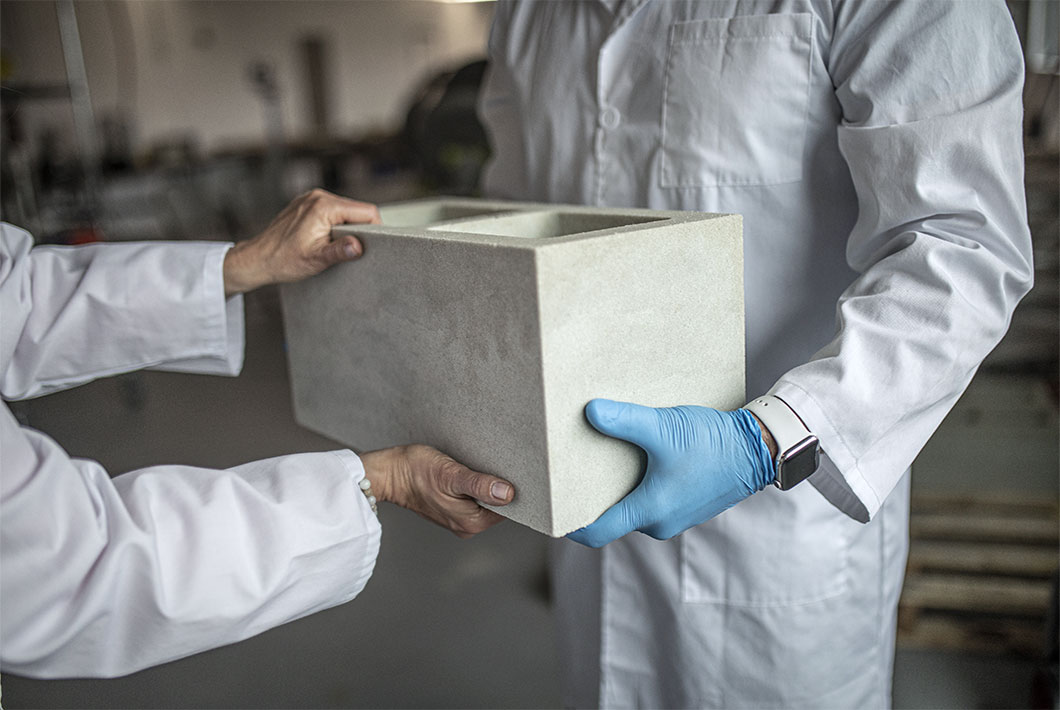
BOULDER, Colo, February 8 – Prometheus Materials, a leader in sustainable building materials, has achieved foundational certifications ASTM C129 for nonloadbearing CMUs and ASTM C90 for loadbearing CMUs for its bio-cement, providing the company with prominent recognition as it launches production. This development comes on the heels of the company’s recent announcements, including the appointment of renowned architect Vishaan Chakrabarti to its Board of Directors, and a partnership with Skidmore, Owings & Merrill (SOM).
Prometheus Materials provides the construction industry with a sustainable alternative to carbon-intensive portland cement. When mixed with aggregate, its bio-cement forms a zero-carbon bio-concrete that offers mechanical, physical and thermal properties that are comparable or, in some cases, superior to portland cement-based concrete.
“We are thrilled to have achieved these two foundational certifications as we proceed in full-force with our goal of decarbonizing construction,” said Loren Burnett, CEO of Prometheus Materials. “Prometheus Materials’ product is poised to change the future of construction, converting one of the most carbon-polluting industries to a low-carbon – and one day net-zero carbon – reality.”
“The future of sustainable building solutions is here,” said Vishaan Chakrabarti, Board of Directors, Prometheus Materials. “With key certifications achieved, I’m hopeful that Prometheus Materials’ product will be deployed at scale in the near future, serving as a major replacement of the carbon-intensive concrete we know today.”
Cement production accounts for 8% of annual CO2 emissions and consumes 9% of annual industrial water on a global basis. In contrast to traditional portland cement, Prometheus Materials’ microalgae-based bio-cement emits little-to-no CO2 and recycles 95% of the water used during its production. Following production, the bio-concrete has the ability to sequester embodied carbon throughout its lifespan.
About Prometheus Materials
Prometheus Materials provides sustainable building materials that accelerate the world’s transition to a carbon-negative future. Inspired by biological processes found in nature, the company’s process uses microalgae to produce a bio-cement that offers an alternative to carbon-intensive portland cement. When mixed with aggregate, this bio-cement forms a zero-carbon bio-concrete with mechanical, physical, and thermal properties that rival those of portland cement-based concrete. Learn more about how the company enables the decarbonization of the construction industry at prometheusmaterials.com.